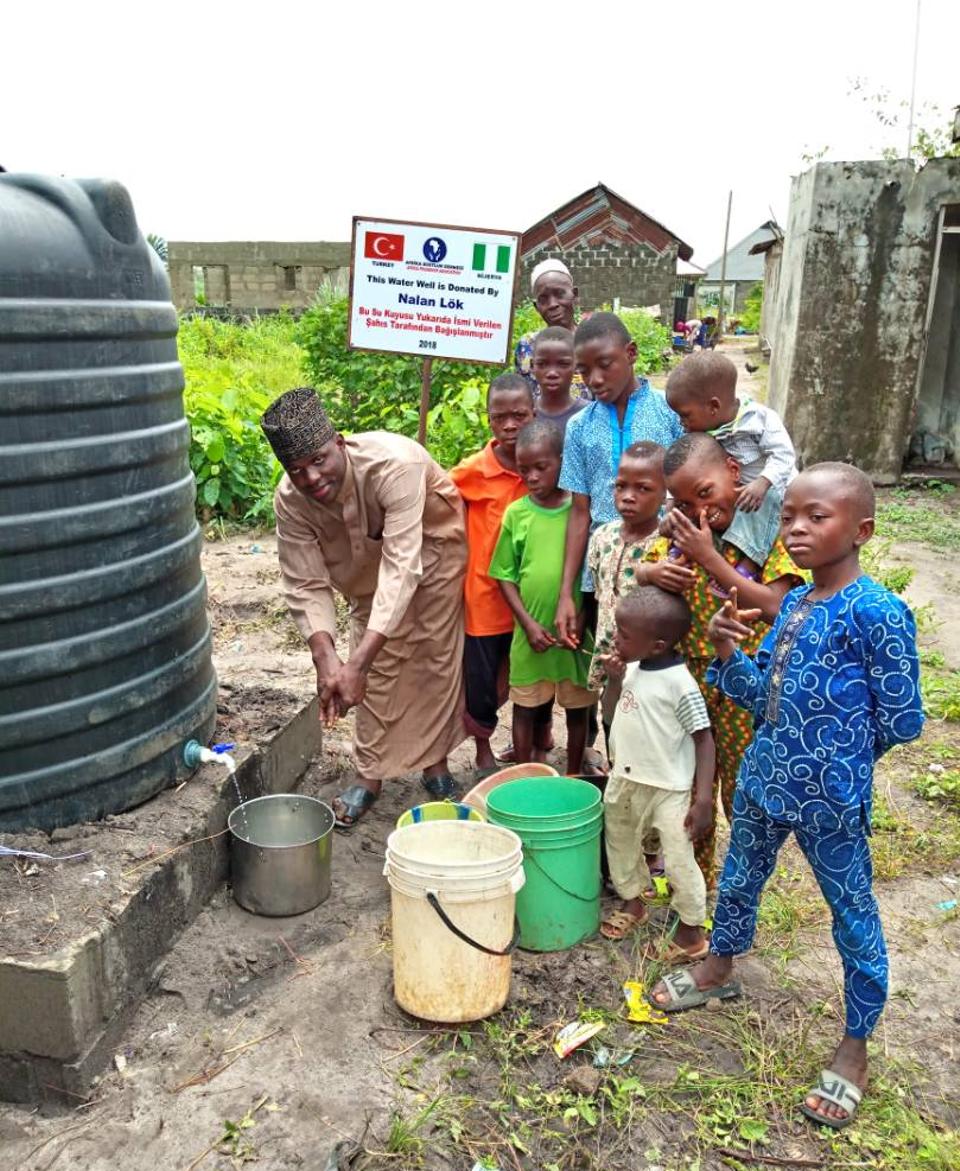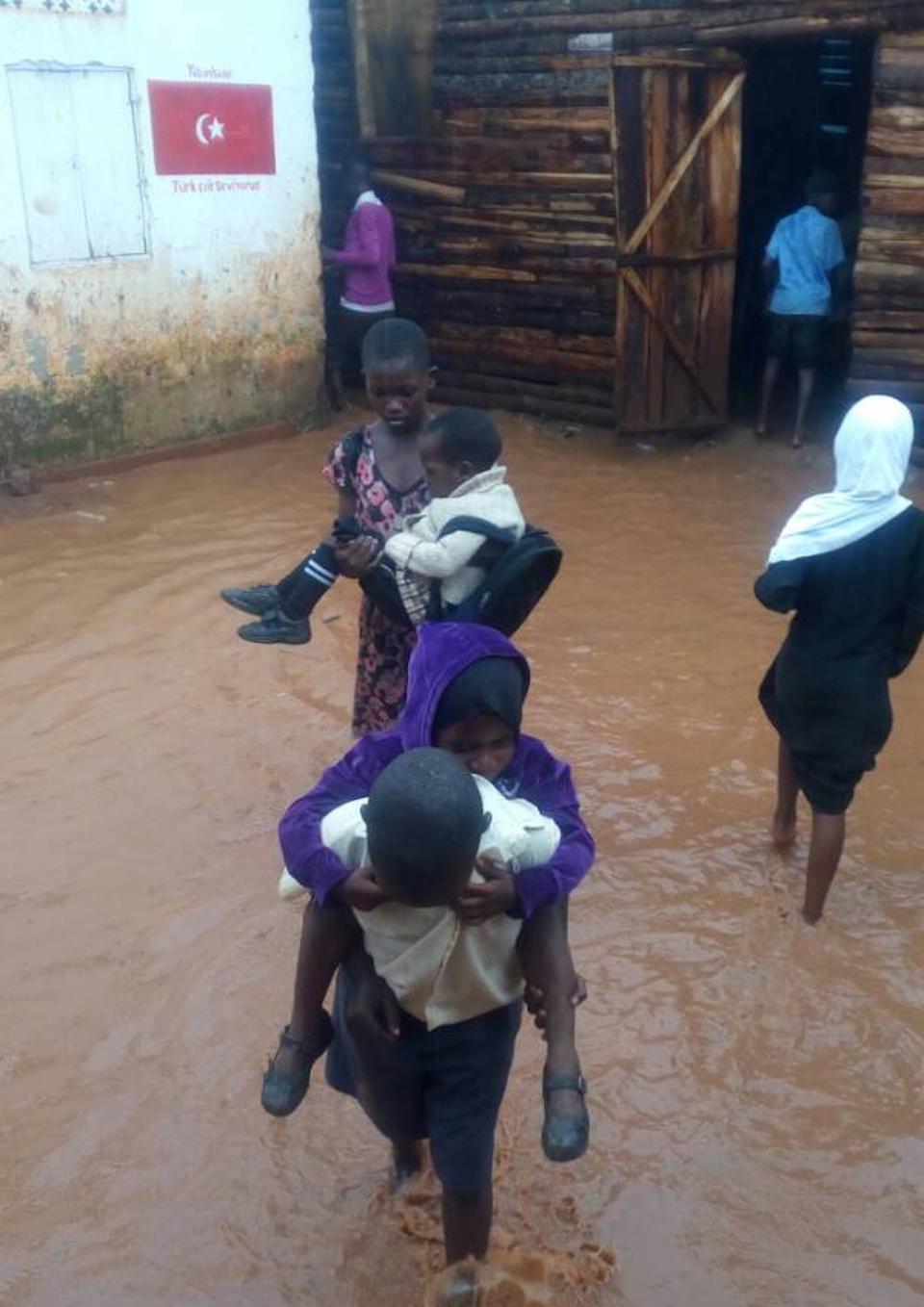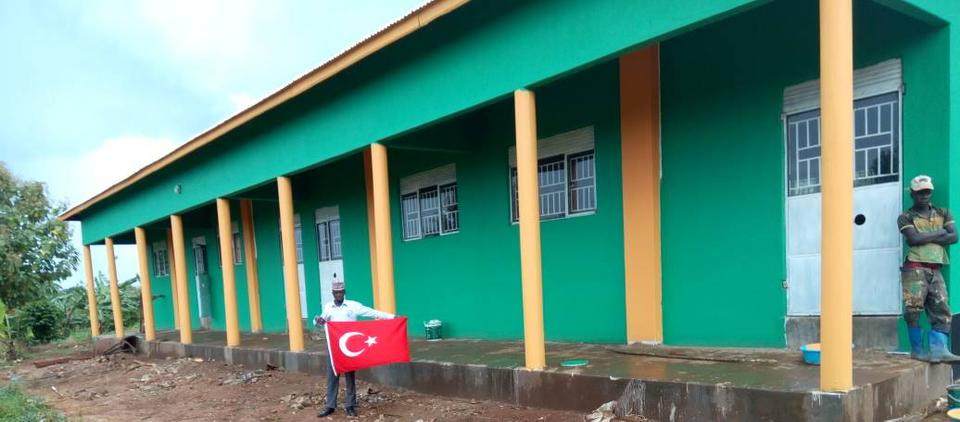Market News
From building schools to wells: Ordinary Turks lend a hand in Africa - TRTWORLD
This is how a group of mostly retired Turkish men are trying to uplift underprivileged communities in dozens of countries in Africa.
Turkey's growing influence in Africa is not only aided by projects and policies implemented by the Turkish government but also shaped by personal contributions made by the Turkish people.
To help people from poor corners of Africa overcome poverty and helplessness caused by economic insecurities, a group of elderly Turkish men are running two non-profits named Africa Friendship Association and the Society for Intercultural Research and Friendship, focusing on education and infrastructural development in several African countries.
Many of the volunteers of the two organisations are retired professionals who have worked in diverse fields ranging from civil engineering, business, education and medicine.
For Semsettin Turkan, who runs Africa Friendship Association, engaging with people from the African continent is crucial since the people there are suffering from the consequences of decades of British and French colonialism.
"I have encountered very emotional events in Africa, so I became more involved in these activities,†said Turkan, a retired physics teacher, who has also served as the former administrator of curriculum development at Turkey’s Ministry of Education.
Turkan and his fellow volunteers have extended their helping hand in the hope of bringing some respite to the people who have found themselves in desperate poverty because of the culture of exploitation that was encouraged during the era of colonisation.
In 2010, Turkan went to Sudan, his first visit to an African country, to identify orphans who had no means to pursue higher education. The idea was to enrol them into Turkish universities and cover all the costs from financial aid to living expenses. He put up an advertisement in a local newspaper - around 500 students applied.
Since Turkan had vast experience in the field of education, he conducted a general IQ examination, shortlisting 200 students who had scored above an average mark. He then conducted one-on-one interviews with all of them and selected 100 candidates for the scholarship grant.
Turkan, who is now 60 years old, said he has been working in the charity world since 1995 when a nonprofit named Society for Intercultural Research and Friendship was founded and he became a part of it.
After his retirement, he devoted most of his time to charity, engaging with people from several African countries and helping them resolve their problems.
Speaking to TRT World, Turkan said that in the last 10 years he has visited several African countries to impart educational training and also to identify areas where intervention could help alleviate poverty.
"I was so moved after seeing the extent of poverty in Somalia," Turkan said. "I saw many people living in tiny huts made of straw and tree leaves. I asked myself--'what can be done to put a roof over their head?'"
In the following years, he went to Niger, where he was disturbed to see people working in scorching heat without shoes. "The sand was extremely hot. One could not stand on it barefoot. I got very upset seeing the condition of those people".
With Turkan and his colleagues witnessing the human impact of widespread poverty in places like Nigeria, Somalia, Sierra Leone, Kenya and other parts of Africa, their resolve to expand charity work strengthened with time.
Last year alone, Africa Friendship Association and the Society for Intercultural Research and Friendship, the two nonprofits to which Turkan is connected, brought several dozen students, mostly orphans, from different parts of Africa to Turkey on a scholarship program.
"We gave more than 100 scholarships in 2019 and all the students are now studying here in Turkey," he said.
To guarantee that a scholarship goes to a deserving candidate, there is a meticulous process in place: applications are looked at forensically, background checks are conducted on each candidate, all in order to ensure they truly come from disadvantaged families and groups.
"We check whether they have any source of income, how many siblings they have, what their parents do in case they are not orphans," Turkan said. "We proactively look for such information."
During the interviews, Turkan said one candidate explained that he had 22 siblings.
"I thought if we could save this boy, he could save the rest of the 21," he said.
The student, he said, became a doctor and passed his examination to further specialise in medicine in Turkey.
Turkan said most students have returned to their respective countries, where they are serving their communities in different professions.

Turkan and his colleagues have now identified that access to water is one of the most compelling issues affecting an overwhelmingly large number of people in the continent.
“We drilled 86 water wells in Kenya, Uganda, Ghana, Nigeria, Cameroon and Sierra Leone,†he said.
Turkish volunteers generally construct wells in two ways — either by manually excavating or by using high powered machine drills.
The cost of constructing a borewell varies depending on the depth of water, soil quality and other local logistics.
The cost of manually excavated wells is roughly between $2,000-$3,000, he said, adding that the cost goes up to $5,000 if the machine drill is deployed.
Turkan and his team members saw poor people in Nigeria converting from Islam to Christianity just for the sake of obtaining water.
“There was a mosque and 13 churches in a region we visited in Nigeria. The mosque did not have a water well, while all churches had water wells.â€
The Muslim community had made a water channel with pipes to collect rain water from the roof of the mosque. But during the dry season, they have no access to water, and that is when they resort to buying water from churches.
The churches then made an irresistible offer: convert to Christianity, and water is suddenly free.
"I was horrified to see people converting for $ 50 for $100," Turkan said.
Turkan and his team decided to build borewells in the area so that people from all faiths could access it without having to pay.
A few months later, as the water problem was resolved, Turkan's team was approached by locals. Turkan said that the people told them they had been "been praying for water for many years, and God eventually sent it through you.â€
In 2011, Turkan and his team met Rebecca Alitwala Kadaga, the speaker of the Ugandan Parliament. Turkan suggested to her that schools for vocational education and training would help the country alleviate poverty.
Kadaga allocated an empty building, constructed by the OPEC grant, and sent 12 Ugandan teachers, who received training in vocational education from Turkey’s Erzurum Ataturk University. She tasked them with teaching courses to students. Turkan's team assisted them in the set up.
In addition, the African Friendship Association participated in a reconstruction project in 2019. There was an orphanage in a Ugandan slum that needed an update. It hosted over 100 children, but had been severely damaged by rainwater floods.

Turkan and his team reconstructed it and also built a primary school, a mosque and a borewell on the twelve acre property in Bombo, which is 35 km away from the country's capital, Kampala.
There are times when Turkan can see how their efforts are bearing fruit. Before the pandemic suspended many of their activities in the African continent, he visited Kenya and Somalia.
While waiting in the immigration queue in Kenya, he heard someone calling ‘Sems’, the short form of his first name Semsettin. As Turkan turned around, he saw one of his former students who had studied in Turkey on a scholarship aid provided by the Intercultural Research and Friendship Foundation fifteen years ago.

“Mr. Sems," said the man. "My name is Juma, do you remember me?â€
Turkan quickly recognised Juma. "He came, hugged and started crying," he said.
Turkan learned that after graduating from the Middle East Technical University in Ankara, Juma had started working at Kenya's Foreign Ministry.
The success of Juma, once an underprivileged student, brought joy to Turkan's heart.









